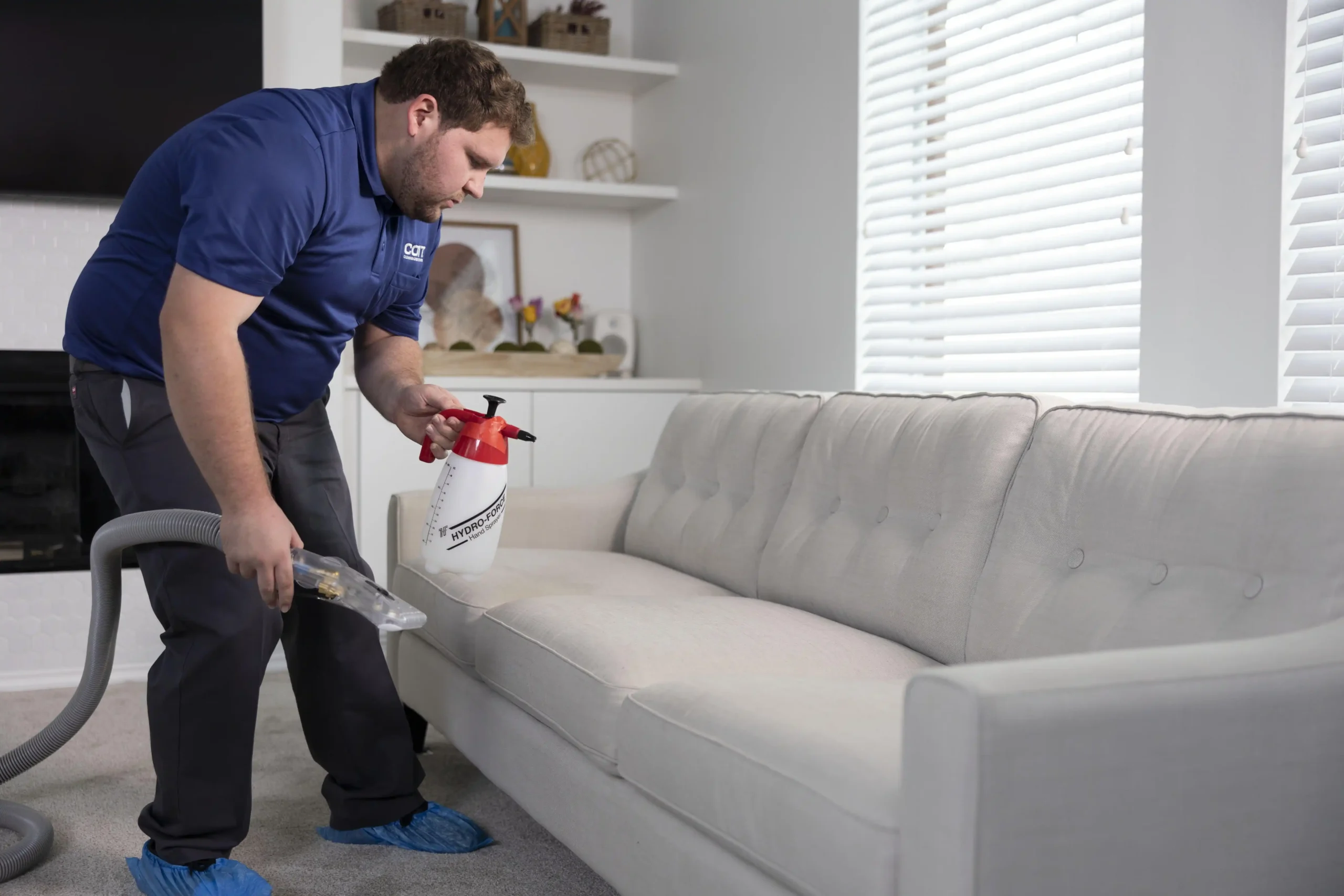In the UK, air conditioning is still often thought of as something useful only during the warmer months — a way to stay cool when temperatures rise and the heat becomes uncomfortable indoors. Yet modern air conditioning systems have evolved far beyond simply keeping spaces cool. The same technology that keeps your home or workplace comfortable in July can also make a significant difference during the colder months.
Today’s systems are designed for year-round use, offering heating, humidity control, and air purification as well as cooling. For both residential and commercial air conditioning users, understanding the all-season benefits of these systems can lead to better comfort, improved efficiency, and even healthier living or working environments.
The Evolution of Air Conditioning
Air conditioning has come a long way since it first became a household luxury. What was once purely a cooling solution is now a versatile climate control system capable of managing temperature and air quality throughout the entire year.
Modern systems, particularly those using heat pump technology, can reverse their cooling process to provide efficient heating. This makes them ideal for the UK’s mild to moderate winters, where maintaining steady indoor temperatures is often more important than generating intense heat.
As more homes and businesses move towards energy-efficient and sustainable solutions, air conditioning units that can both cool and heat have become a practical investment. They remove the need for separate systems and help maintain comfortable, stable indoor environments regardless of the season.
Heating Through Heat Pump Technology
The secret to year-round air conditioning lies in heat pump technology. Instead of generating heat like a traditional boiler, a heat pump transfers it. In cooling mode, it removes heat from the inside and expels it outdoors. In heating mode, it reverses the process, extracting warmth from the outside air and circulating it inside.
This process is far more energy-efficient than conventional heating methods. Even when outdoor temperatures are low, modern heat pumps can capture and convert enough heat energy to warm homes and offices effectively. For residential and commercial air conditioning systems, this dual functionality means lower running costs and reduced reliance on fossil fuels.
Because they operate electrically rather than by burning fuel, these systems also produce fewer carbon emissions — a benefit that aligns with the growing push for greener building technologies across the UK.
Maintaining Consistent Indoor Comfort
Comfort isn’t just about temperature; it’s about consistency. During the winter, homes and workplaces often experience uneven heating, with some rooms feeling overly warm while others remain chilly. Air conditioning systems designed for year-round use can help regulate this imbalance by distributing heat evenly throughout the building.
This even distribution creates a more pleasant and stable indoor environment. It also prevents the frequent fluctuations that can occur when relying on radiators or fan heaters alone. In offices or commercial settings, this means staff can work more comfortably, and customers enjoy a welcoming atmosphere.
In residential settings, it ensures that every room maintains a balanced temperature — particularly useful for open-plan spaces or homes with large windows, which are prone to heat loss during colder months.
The Role of Air Conditioning in Air Quality
During winter, most people spend more time indoors with windows closed, trapping air that can quickly become stale and stuffy. Central heating systems often dry the air, reducing humidity and contributing to discomfort, skin irritation, and even respiratory problems.
Modern air conditioning systems help counteract these effects by maintaining optimal humidity levels and filtering airborne particles such as dust, pollen, and bacteria. Many systems now include built-in air purification technology, making them valuable for both comfort and health.
This feature is especially beneficial in commercial environments where high occupancy can lead to reduced air quality. From offices and retail spaces to restaurants and clinics, clean, well-filtered air helps prevent the spread of airborne illnesses and promotes overall wellbeing.
In homes, improved air quality is equally important — particularly for families with children, elderly relatives, or anyone who suffers from allergies or asthma. Air conditioning systems that run year-round provide a steady supply of fresh, filtered air, making indoor living spaces healthier through every season.
In regions where summer temperatures soar, maintaining a functional air conditioning system is crucial for comfort and health. Regular maintenance can prevent unexpected breakdowns and ensure efficiency. For residents in Mountain City, GA, accessing a reliable Air conditioning repair service in Mountain City, GA is essential to keep systems running smoothly. These services not only address immediate issues but also offer preventive care, extending the lifespan of your unit. By investing in professional repair and maintenance, homeowners can enjoy a consistently cool environment, even during the hottest months. This proactive approach to air conditioning care can significantly enhance indoor air quality and overall well-being.
Reducing Condensation and Damp
Condensation is one of the most common issues faced by UK homeowners during winter. When warm indoor air meets cold surfaces, moisture forms, often leading to mould growth and damp patches. These problems not only affect the appearance of a property but can also cause long-term structural and health issues.
Air conditioning units help prevent condensation by regulating humidity and keeping indoor temperatures balanced. By gently circulating air and maintaining a steady climate, they stop moisture from building up on walls and windows.
In commercial buildings, this feature is particularly valuable for protecting inventory, office equipment, and interior finishes. Consistent temperature and humidity control help maintain the condition of materials such as wood, textiles, and electronics that are sensitive to moisture fluctuations.
Energy Efficiency All Year Round
Energy efficiency has become one of the most important considerations for both homeowners and business owners. With rising energy costs and increased environmental awareness, systems that provide heating and cooling from a single source offer clear advantages.
Residential and commercial air conditioning systems that include inverter and heat pump technology operate efficiently at variable speeds. Instead of switching on and off like older models, they automatically adjust output to maintain the desired temperature. This approach uses significantly less energy and results in lower utility bills over time.
When compared with electric or gas heating systems, year-round air conditioning can often achieve the same level of warmth for less energy input. For businesses, this translates into measurable cost savings across large properties, while for households it means affordable comfort during both summer and winter.
Supporting Commercial Productivity
In commercial spaces, the benefits of air conditioning in winter go beyond comfort alone. Productivity and focus are closely linked to the working environment. Rooms that are too hot or too cold can make concentration difficult and reduce overall efficiency.
Well-maintained air conditioning provides consistent, controllable warmth that keeps workplaces comfortable for everyone. Employees remain alert, customers feel more at ease, and equipment such as computers and servers operate more reliably under controlled temperature conditions.
For businesses in hospitality or retail, air conditioning also enhances the customer experience. A warm, welcoming interior encourages visitors to stay longer and creates a positive impression — something that’s especially valuable during the colder months when outdoor conditions are less inviting.
The Value of Regular Maintenance
For air conditioning systems to deliver year-round performance, regular maintenance is essential. Servicing ensures that filters remain clean, components operate efficiently, and any minor issues are addressed before they develop into expensive repairs.
A neglected system can lose efficiency and even produce unpleasant odours if dust and moisture accumulate. Professional servicing typically includes cleaning the coils, checking refrigerant levels, and verifying that both heating and cooling modes function correctly.
For businesses that rely on climate control, scheduled maintenance contracts can be particularly beneficial, providing peace of mind that systems will perform reliably throughout the year. Homeowners, too, can avoid winter breakdowns and ensure optimal efficiency by arranging a service before the colder weather sets in.
Preparing for Seasonal Transitions
The shift from summer to winter can place new demands on air conditioning systems. As temperatures drop, the focus moves from cooling to heating, and this transition period is when efficiency matters most.
Modern systems make this switch effortlessly, but it’s still important to adjust settings correctly. For residential users, this might mean setting thermostats slightly lower to maintain steady, gentle warmth rather than sudden bursts of heat. For commercial users, zoning and programmable controls allow different areas to be managed independently, ensuring no energy is wasted heating unoccupied spaces.
These smart controls also allow systems to learn usage patterns and optimise performance automatically. By tailoring heating and cooling output to real-world demand, they provide comfort while keeping energy use low.
Sustainability and Future-Proofing
Sustainability is at the heart of many technological advances in the HVAC industry. Air conditioning systems that serve dual purposes — heating and cooling — align perfectly with modern energy goals. They reduce reliance on gas, integrate easily with renewable sources like solar power, and offer a clear path towards low-carbon building management.
For homeowners, investing in an energy-efficient system not only cuts bills but also increases property value. Buyers and tenants are increasingly drawn to homes that offer efficient, sustainable comfort throughout the year.
For businesses, the sustainability factor can form part of broader corporate responsibility commitments. Reducing emissions while maintaining productivity demonstrates environmental awareness and modern thinking, both of which appeal to clients and staff alike.
A Year-Round Essential
Air conditioning is no longer a seasonal luxury but a year-round necessity for both homes and workplaces. With the ability to heat, cool, purify, and dehumidify, it provides a level of comfort and control that traditional systems simply can’t match.
Residential and commercial air conditioning users alike are recognising the value of investing in a system that works just as hard in winter as it does in summer. From maintaining consistent warmth to improving air quality and energy efficiency, the benefits extend far beyond temperature control.
As the UK climate continues to fluctuate and energy efficiency becomes increasingly important, year-round air conditioning offers a future-ready solution. It ensures that whether it’s the peak of summer or the depths of winter, comfort, health, and performance remain at their very best.


